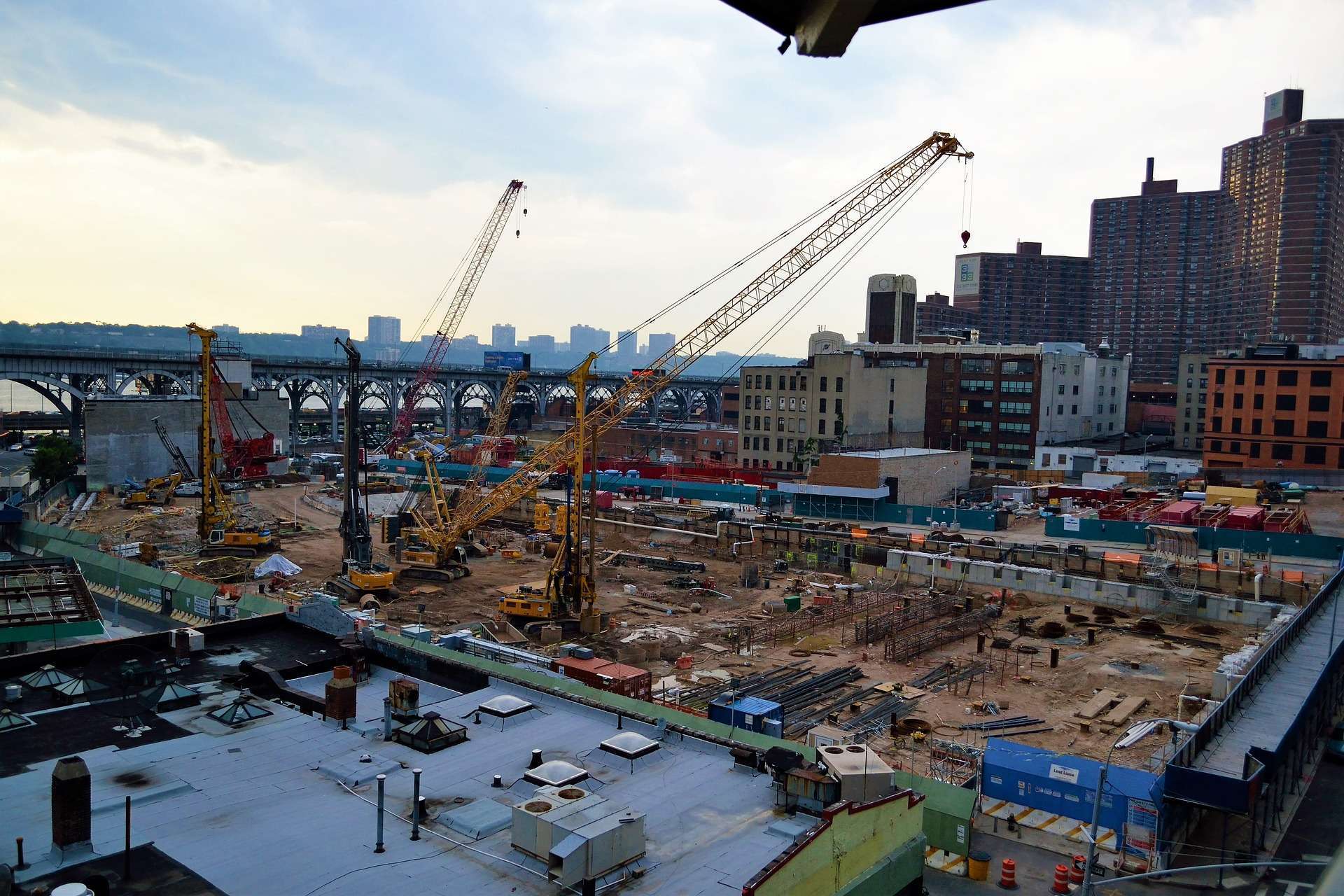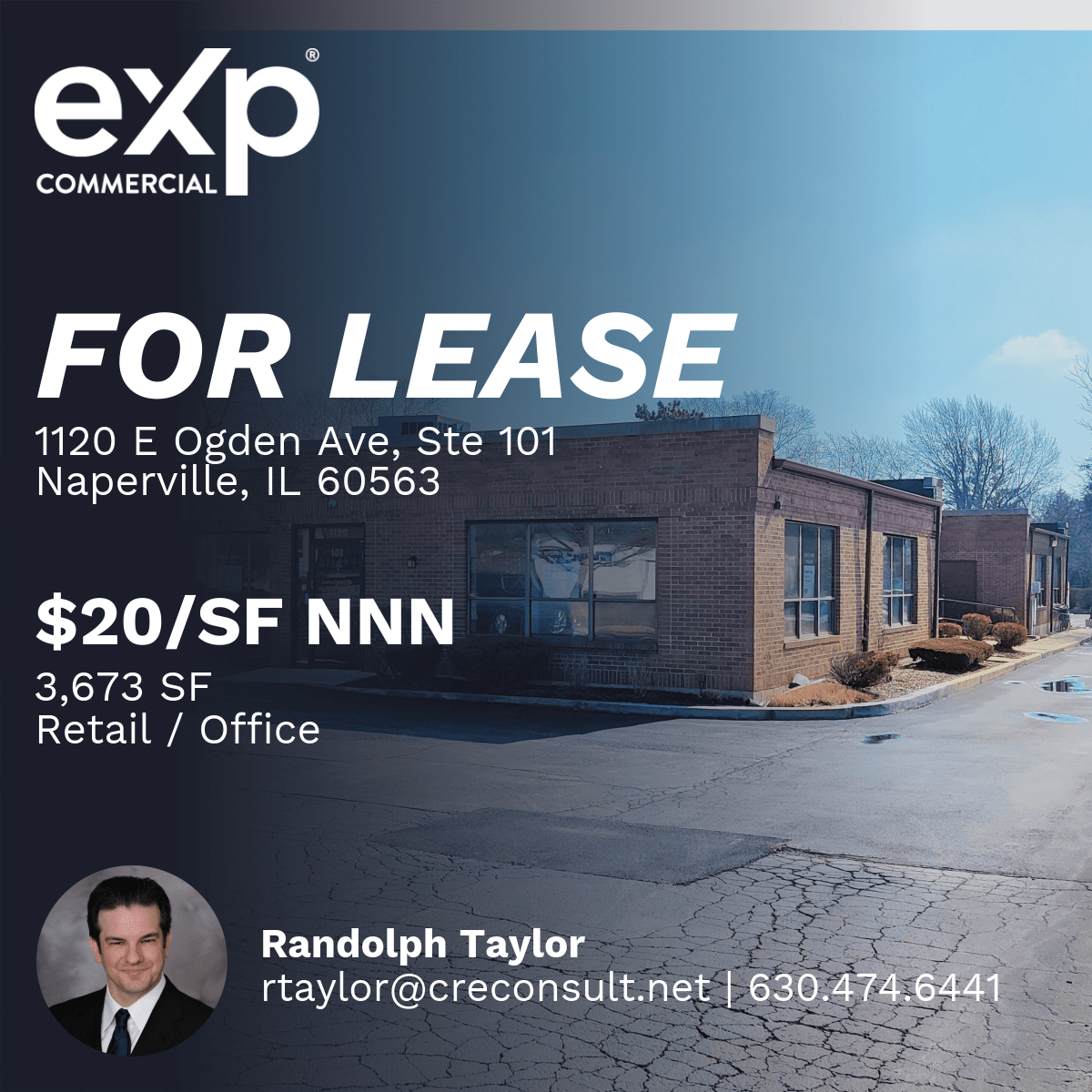https://www.creconsult.net/partners/

eXp Commercial is one of the fastest-growing national commercial real estate brokerage firms. The Chicago Multifamily Brokerage Division focuses on listing and selling multifamily properties throughout the Chicago Area and Suburbs.


Foreign Investors: What Do They Need to Know Before Investing in the US
There are no citizenship requirements for buying real estate in the US. Foreigners who are non-citizens can even apply for a mortgage in the US. However, foreign property owners may face complex tax laws compared to US citizens.There are no citizenship requirements for buying real estate in the US. Foreigners who are non-citizens can even apply for a mortgage in the US. However, foreign property owners may face complex tax laws compared to US citizens. There are also certain factors to consider before buying real estate, such as a visa and other requirements. Here’s what foreign investors need to know before investing in property in the US:
Basic Requirements for Buying Property in the US
The following are basic requirements you’ll need to buy property in the US.
* Valid foreign passport
* US visa
* Social Security number or ITIN
* Bank statements
* Financial documents from your foreign bank
* Evidence of reserves
* Tax return
If you’re only visiting the US to buy property but have no intention of staying long-term, you must hold a B-1 or B-2 visa. The B-1 is for business visits, while a B-2 is for tourism. As a B visa holder, you can stay in the US for up to 6 months at a time, which is generally enough time for you to make any major real estate decisions. However, to secure this visa, you must be able to prove that you have reserves or sufficient funds to support yourself during your stay.
Mortgages for Non-Resident Foreign Buyers In 2021, 61% of foreign buyers made all-cash purchases for property. As a foreign national buyer, you certainly have the option to pay all cash. However, you can also obtain a US mortgage without a US credit history. There are US mortgage lenders that specialize in foreign national mortgage loans. To obtain pre-approval, you’ll need to provide additional requirements that demonstrate your ability to make payments on the property, including evidence of assets or savings that can help you make a down payment.
Because you don’t have a US credit history, the US lender will also likely use an International Credit Report. The credit report will provide data that mortgage lenders would typically need to assess creditworthiness. It will reveal your credit history in your home country, property ownership, and property tax. The lender will also investigate public records to identify if there are any liens, judgments, or foreclosures in your name for property inside and outside the US.
Taxes for Foreign Property Owners
The Foreign Investment in Real Property Tax Act of 1980 (FIRPTA) may apply to your property purchase. The tax law will impose a US income tax on you should you eventually decide to sell the property or receive income from it. In general, income from US property owned by a foreign national is taxed at a 30% rate. However, there are tax treaties that exist with several foreign countries. And if the treaty applies to you, you might enjoy a reduced tax rate. Additionally, some states may require an additional holdback from a foreign investor when they do sell a property in the United States.
Because of the complexities of investing in real estate in the US as a foreigner, it’s best to work with a reputable real estate company.
Source: Foreign Investors: What Do They Need to Know Before Investing in the US
https://www.creconsult.net/market-trends/foreign-investors-what-do-they-need-to-know-before-investing-in-the-us/
What Are the Top Two Real Estate Fundamentals to Keep in Mind When Investing?
There are different ways to invest in real estate. If making money sooner rather than later is your goal, one of the key ways you can do that is by purchasing real estate that you can rent out. Another way to earn money is by buying undervalued real estate, fixing it up, and selling it for a profit. You may even be considering participating in real estate trust (REIT) exchanges. Whether you’re planning to become a landlord or a real estate flipper or diversify your portfolio, there are important factors to consider before investing in property. Let’s break down each of these:
Define your Investment purpose
Define your reasons for investing. What are your cash flow and profit expectations? Are your goals short-term or long-term?
As mentioned, there are different ways to invest in real estate. Are you buying property for self-use? This approach allows you to save on rent while also enjoying value appreciation. Or are you planning to be a landlord so that you can gain regular rental income and long-term value appreciation? There’s also the option to buy and sell or “flip a house” for a profit. There’s also the long-term buy and sell option, which means investing in real estate now in the hopes that it will appreciate over a long period and satisfy your long-term goals.
Understand the importance of location
“Location, location, location.” Location cannot be stressed enough because renters and home buyers will also be prioritizing the location of their houses. A potential tenant or buyer may love the home but will hesitate if its location is in a “bad” neighborhood or “off-grid.” Unless the renter or buyer’s goal is a secluded home in isolation, they’re likely looking for access to markets, healthcare facilities, schools, gas stations, and public transportation.
Generally, the closer your investment is to local amenities, the better. We live in a day when “30 minutes or less” and “same-day delivery” is still not fast enough for most consumers. The same goes for traveling to amenities such as grocery stores, hardware stores, restaurants, shops, and entertainment. Renters and homeowners also want easy access to public transportation to ease their commute to school and work. This includes a preference for properties closer to highways, bus stops, and train stations.
But what do you do when supply is low, and prices are high in the best neighborhoods? You do your research and look for the locations that have potential. Look for signs that a community is growing. Watch out for access to major roadways, new constructions, declining crime rates, and city development projects. It’s also a good sign if the area has popular chain businesses coming soon or if an established company has announced they’ll be opening a branch or office in the area. Any sign of new construction and businesses mean more jobs. And more jobs mean more people are moving to the area and looking for homes.
Source: What Are the Top Two Real Estate Fundamentals to Keep in Mind When Investing?
https://www.creconsult.net/market-trends/what-are-the-top-two-real-estate-fundamentals-to-keep-in-mind-when-investing/
Why I Want to Know More About ESG in Multifamily
Interviews for this year's 20 for 20 White Paper, ESG (Environment, Social and Governance) was an unsurprisingly common theme. Based on the 20 conversations with senior executives, it seemed that ESG was becoming a driver in many decisions, including technology implementations.
At the time, I noted that while the influence was big, it was unspecific. The parameters executives used to define potential ESG benefits of technology projects seemed extremely broad. The most sophisticated companies in the domain appeared to be at the stage of defining how they could measure ESG rather than using it as a decision-making criterion for individual projects.
The broader media coverage of ESG in the nine months or so since those interviews has presented a mixed bag of views on ESG. It makes me want to know more about how it's affecting multifamily operations and technology.
A Shifting Tide?
I was interested to read a recent special in The Economist (ESG Investing: A Broken Idea) that provided a detailed review of current ESG investment practices. The collection of articles referenced (and were perhaps inspired by) an essay series by Tariq Fancy, the former chief investment officer for sustainable investing at BlackRock, the world's largest asset management company.
Fancy called into question the ultimate benefits of ESG initiatives, claiming that the profession is little more than "marketing hype, or spin and disingenuous promises from the investment community." He pointed out that investments were rendered acceptable according to the ESG narrative that could be established rather than hard facts about their benefit.
The Economist took a similar perspective, generally calling into question the legitimacy of current ESG measures for several reasons. One, there are far too many of them. A study of six ESG rating agencies found that they used 709 metrics across 64 categories, only ten of which were common to all six agencies.
As well as the sheer number of metrics, the Economist questioned the variety of interchangeable metrics that can contribute to ESG scores. If firms can balance poor "environmental" scores with higher "social" ones—which are heavily dependent on the prevailing political climate—it is hard to see how the scores encourage real accountability.
The Economist strongly suggests that the ESG industry is, at least in part, driven by the need for asset management firms to identify new revenue streams. The recent apparent cancellation of "Dilbert" cartoons for ridiculing ESG culture at work also suggests a sadly familiar politicization of what ought to be a force for good.
A Multifamily Perspective
My sense from the executive interviews is that multifamily perspectives of ESG are firmly downstream of the broader investment community. Of the interviewees, public companies or anyone who has to raise capital paid the most attention to ESG. If investors look increasingly to the ESG performance of companies in deciding where they place investments, then ESG is de facto important. But details are scant.
The Economist's strong recommendation is to scrap most of what investors currently think of as ESG and replace it with just "E," which should stand not for "emissions" rather than "environmental."
If companies were to hold themselves to the standard of trying to reduce emissions, stakeholders would at least have a chance to establish whether or not the companies were achieving their goals. There would also be a clear and broad benefit: reducing the contributions to climate change.
The appeal of this approach is to make targets specific and measurable. The article parallels the other things we use to measure investments, most notably accounting measures. For example, the metrics included in companies' profit and loss statements and balance sheets are concrete in a way that ESG metrics currently are not.
Towards Concrete Measurements?
If the tide were to turn in the investment community way the Economist and Mr. Fancy recommend, it is interesting to consider what it would mean for multifamily. It might tighten the scope so that only things with a direct environmental impact matter. Utility usage and the selection of development materials could become the primary or even the sole focus of the thing we currently call ESG.
Of course, at this point, nobody knows how priorities will change. But what particularly interests me is what multifamily firms are actually doing concerning ESG.
When I prepare to interview 20 more leaders at the end of the year for next year's paper, you can be sure I will ask them for their views on ESG initiatives. I want to know more about what went on this year, how we can expect them to change in 2023, and to get a read on where ESG sits in the priorities of executive leadership.
Source: Why I Want to Know More About ESG in Multifamily
https://www.creconsult.net/market-trends/why-i-want-to-know-more-about-esg-in-multifamily/
Multifamily sellers: How to qualify a buyer before going under contract
As the seller of a multifamily asset, it’s crucial that the buyer you select is the best possible prospect for your property. Don’t waste time, money, and opportunities: you must ensure they’re qualified and can close and execute the contract as signed.
Keep reading to learn why it’s essential to qualify a buyer before going under contract on your multifamily property and how to do it.
Why do I need to qualify a buyer?
It’s important to close with the first buyer you select. If you don’t, each buyer after that will ask themselves, “What did that other buyer discover about this property that I am missing?”.
When you enter into a contract with a refundable deposit, you’re basically giving your chosen buyer a free option on your property for a period of time, typically 30–60 days. Before you proceed, you must be confident that they can close and execute the contract as signed.
What’s more, your tenants and staff will be disturbed throughout the contract process. To minimize the period of disruption, you should do all you can to ensure the transaction will close successfully at the end of the contract process.
As a seller, you’re required to provide due diligence information to the prospective buyer. When you qualify your buyer, you’ll greatly reduce the risk of wasting a lot of time and doing a lot of work only to not close on the property.
How do I qualify a buyer?
Before you sign the contract, make sure that your prospective buyer can provide certain items. Always ask them for the following:
– Proof of funds
– Lender pre-qualification
– A list of the other properties they own
– A list of the sellers and agents that they have worked with
For added reassurance, it’s recommended that you call the buyer’s lender to confirm their pre-qualified status. You can also call the agents, sellers, and buyers they’ve closed with in the past to enquire about how the transactions went.
Has the buyer toured the property in person before making an offer? Have they reviewed the due diligence information beforehand? If they have, this is a great sign. It’s proof that they have seen and have taken into account any issues with your property, and this greatly reduces the chances that they may later want to back out of the sale, saying they were unaware of the building’s condition. Be very wary of a buyer who doesn’t tour your property in person.
A prospective buyer who shows they’re motivated and wants to move quickly is also a great sign for a successful closing. The shorter the due diligence period, the better, and the larger the deposit, the better.
When you spend the time making sure your prospective buyer fulfills these criteria, you’ll put yourself in a great position to close successfully and ensure a quick and smooth transaction.
If you need help selling your multifamily property, eXp Commercial is here. Our objective as your multifamily advisor is to help you achieve your investment goals: from determining the listing price to selecting the best buyer and handling the sale process through to the closing, we’ll facilitate a smooth transaction for you.
Source: Multifamily sellers: How to qualify a buyer before going under contract
https://www.creconsult.net/market-trends/multifamily-sellers-how-to-qualify-a-buyer-before-going-under-contract/
Maintaining Your Multi-Family Real Estate Investments Property Checklist
Penny wise and pound foolish. Everyone has heard that old saying, but do you really know what it means. At its most basic it means to not choose to save pennys on items that if not addressed will cost you much more (back when this saying first came about, a British pound comprised 240 pennys). How this applies towards real estate investments are many fold, and specifically really seen in the area of maintenance.
In fact, most savvy real estate investors realize that the best way to maximize their returns is to make sure that their investments are well maintained. Not only will a well maintained property maximize their returns, but it will also protect their investment by at the very least maintaining their ROI.
Maintenance is as critical to your investment as any other component as staying ahead of issues can save you money, time and potential headaches. We reached out to our friends at Perma Pier to help us put together a checklist of sorts for routine property maintenance and advice on what to look for to prevent any issues getting out of hand. Here's a few of the tips you'll find:
• Walk Thru each unit at least annually to check for small water leaks, that may easily be fixed for a few dollars, vs. replacing damaged wood due to a continual leak.
• Have your electrical system inspected or tested annually: electrical issues account for 24.5% of all reported fires in non-residential buildings.
• Inspect the caulking and weather-stripping around windows and doors: finding and fixing air leaks could save you thousands in energy bills.
• keep an open line of communication with your residents and encourage them to report maintenance items they see and/or feel need attention.
Source: Maintaining Your Multi-Family Real Estate Investments Property Checklist
https://www.creconsult.net/market-trends/maintaining-your-multi-family-real-estate-investments-property-checklist/
Chicago apartment market 2025 is one of the most competitive rental environments in the country. Anyone who’s ever tried to find a two-bedr...
